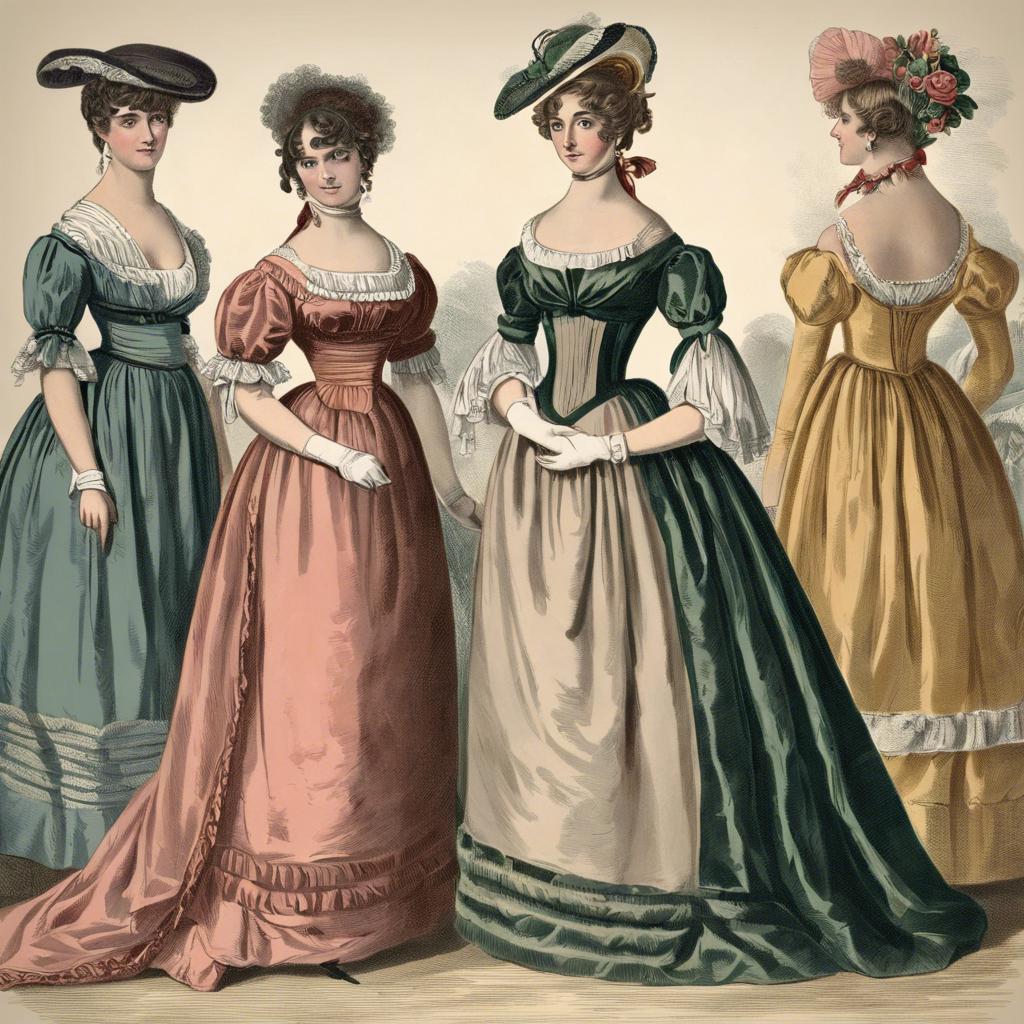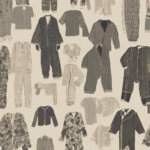The Regency Era in the United States, lasting from 1811 to 1820, was a regency era trivia”>pivotal period marked by political upheaval, social transformation, and cultural advancement. As the young nation grappled with the aftermath of the War of 1812 and navigated the challenges of post-revolutionary nation-building, a new era of diplomacy, innovation, and artistic expression emerged. Join us as we delve into the complex tapestry of the Regency Era in the United States and explore the key events, figures, and influences that shaped this remarkable period in American history.
Step Into the World of Cheryl Bolen
Dive into the enchanting stories of love, intrigue, and elegance set in the Regency Era. Cheryl Bolen's novels offer timeless romance and captivating tales that will leave you wanting more.
Explore Cheryl Bolen's Books Now
Fashion Trends During the Regency Era in the United States
In the early 19th century, the Regency era in the United States was characterized by elegant and refined fashion trends that were influenced by the European styles of the time. Women’s fashion during this period was heavily inspired by the classical Greek and Roman silhouettes, with flowing empire waist dresses made of lightweight fabrics such as muslin or silk. These dresses were often adorned with intricate embroidery, delicate lace, and ornate puffed sleeves.
Men’s fashion in the Regency era was defined by tailored suits with high collars, fitted waistcoats, and trousers that were either breeches or long pants. The dandy style was popular among affluent gentlemen, who would accessorize their outfits with top hats, cravats, and leather boots. Pastel colors, intricate patterns, and luxurious fabrics like velvet and jacquard were commonly seen in men’s attire during this time.
Accessories played a crucial role in completing the Regency look for both men and women. Women would often wear delicate shawls, pearl jewelry, and gloves, while men would sport pocket watches, walking canes, and monocles. Hairstyles were also a significant aspect of fashion during this era, with women styling their hair in elaborate updos adorned with ribbons, feathers, and flowers. the Regency era in the United States was a time of sophisticated and graceful fashion that continues to inspire designers and fashion enthusiasts today.
Influential Figures of the Regency Era in American Society
The Regency Era in American society was a time of significant change and evolution, marked by the influence of several key figures who shaped the cultural landscape of the time. These influential individuals played a pivotal role in shaping the social, political, and artistic norms of the era.
One such figure was Dolley Madison, the wife of President James Madison. Known for her exceptional social skills and charisma, Dolley was a prominent figure in Washington society and played a crucial role in shaping the role of the First Lady. Her famous social gatherings at the White House brought together politicians, diplomats, and intellectuals, making her a central figure in American high society.
Another influential figure of the Regency Era was John Marshall, the Chief Justice of the Supreme Court. Marshall’s landmark decisions, such as Marbury v. Madison and McCulloch v. Maryland, helped to establish the principle of judicial review and solidify the power of the Supreme Court. His legal expertise and strong leadership had a lasting impact on American jurisprudence.
Notable Events and Social Changes in the Regency Era US
In the Regency Era US, there were many notable events and social changes that shaped the landscape of the time. One significant event was the War of 1812, which saw the United States take on Great Britain in a conflict that lasted from 1812 to 1815. This war had far-reaching consequences for the young nation, including the burning of the White House and the emergence of American naval power.
During this era, there were also important social changes taking place in the United States. The rise of the Industrial Revolution brought about urbanization and a shift from agrarian to industrial economies. This led to the growth of cities and the expansion of the middle class, as well as the emergence of new social structures and hierarchies.
Additionally, the Regency Era US witnessed the beginnings of significant social reform movements, such as the abolitionist movement. Activists like Frederick Douglass and Harriet Tubman worked tirelessly to end slavery and promote civil rights for all Americans. These movements laid the groundwork for the eventual abolition of slavery and the fight for equality that continues to this day.
Exploring Regency Era Architecture and Interior Design in America
The Regency Era in America was a time of elegance and sophistication, characterized by a unique blend of Georgian and Federal architectural styles. One hallmark of Regency architecture is the use of classical elements such as columns, pilasters, and pediments, inspired by ancient Greek and Roman design. These elements were often incorporated into grand mansions and public buildings, creating an aura of grandeur and opulence.
Interior design during the Regency Era in America was equally refined, with a focus on symmetry, balance, and understated luxury. Rooms were often decorated in soft color palettes, with delicate furnishings and intricate moldings. Light and airy spaces were favored, with large windows and high ceilings to create a sense of openness and light.
Some key features of Regency Era architecture and interior design in America include:
- Neoclassical influences
- Geometric shapes and patterns
- Emphasis on natural light
- Use of fine materials such as marble and silk
In Retrospect
the Regency Era in the United States was a pivotal period marked by significant social, political, and cultural changes. From the rise of democratic ideals to the expansion of the nation’s territory, this era laid the foundation for the modern United States that we know today. The legacy of the Regency Era lives on in our nation’s institutions and traditions, serving as a reminder of the resilience and adaptability of the American spirit. As we look back on this era with a sense of reverence and admiration, let us continue to honor and learn from the lessons of the past as we navigate the challenges and opportunities of the present and future.


